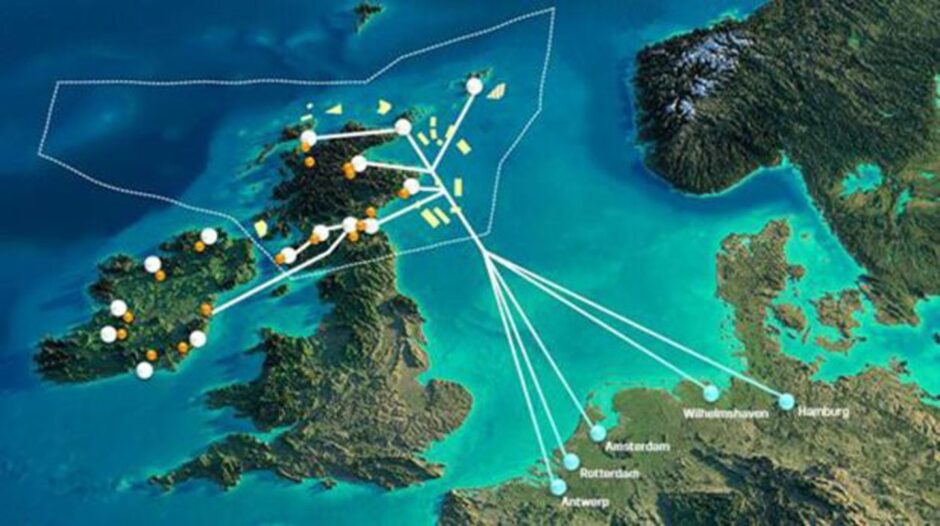
To be honest, I’ve never been overly positive about the whole Scottish decommissioning sector.
With the exception perhaps of well plugging and abandonment I just have this feeling that as usual, we haven’t really invested enough in the infrastructure or the right hardware to be able to take real advantage of the opportunity.
No matter, the question I’m really asking myself now is whether our priorities need re-examining and decommissioning oil and gas infrastructure should actually be put on the back burner or, where it might be an option, the infrastructure should be repurposed.
The reason I ask this is two-fold. Firstly, nobody could or should possibly deny that the energy sector and the UK Government’s priority must be to tackle climate change by reaching so-called net zero as fast as possible.
The warning signs for not doing this are already there. If you think this year was hot then just wait until 2024 when even more records will almost certainly be broken.
Storm Babet was an even more recent example of the extreme weather we’re now experiencing due to climate change.
Secondly, decommissioning is costing the industry and the taxpayer a shedload of money.
Energy Voice reported recently that the most recent Decommissioning Cost and Performance Report published by the North Sea Transition Authority (NSTA) on 9 August showed that the total cost estimate for decommissioning remaining oil and gas infrastructure on the UK Continental Shelf (UKCS) is over £40 billion.
But that expenditure will take us no closer to net zero and I’m not convinced it’s providing as much of an economic or industrial benefit as we keep pretending it is. But then that’s pretty much always the case when you set out to do something but fail to invest enough money in it.
So wouldn’t it be sensible to look at reprioritising that “investment” and putting the money into things that can really make a difference as far as dealing with climate change is concerned?
In a sense it’s very similar to the way I look at electrifying oil and gas production in that it’s simply the wrong priority.
We should not even be considering using technology to make oil and production cleaner.
The idea of building a wind farm to power an oil and gas installation when it could be used to – for example – produce hydrogen to displace that oil and gas production just strikes me as perverse or to use a phrase I’m not at all fond of but does seem appropriate here – greenwashing!
Memorandums of Understanding (MOUs) have been signed with Germany regarding the possibility of exporting hydrogen from Scotland to Europe.
Given we don’t manufacture any of the technology needed to do that, Scottish participation is inevitably going to be limited unless we can think of an intelligent way of increasing Scottish content.
Let’s take another look at this and consider firstly which chunks of infrastructure might be useful for hydrogen production.
A good example is that in the Netherlands, Noordgastransport (NGT) and NOGAT (Northern Offshore Gas Transport) are investigating the reuse of the Netherlands’ offshore gas trunklines for hydrogen transport.
A study they commissioned has concluded that they could be “repurposed” for hydrogen transportation before 2030 either for 100% hydrogen or blended with natural gas.
The Netherlands, I remind you, has one of the first towns that voted in favour of scrapping their natural gas boilers and replacing them with hydrogen boilers using green hydrogen. So, this proposal to reuse pipelines for green hydrogen produced offshore using wind-powered electrolysers makes perfect sense.
In Scotland the Government in Edinburgh is funding a not dissimilar study called “Hydrogen Offshore Production 2” which is being managed by the Net Zero Technology Centre.
That study will aim to “demonstrate that offshore green hydrogen production is feasible at a scale of 500MW to 1GW through the repurposing of existing oil and gas assets in the UKCS” and then make a comparison of the results with a new-build offshore green hydrogen facility.
All this makes perfect sense to me although I feel obliged to point out that as always there seems to be little effort going into developing the technologies we will need to bring these ideas to fruition so it will all need to be imported.
This is probably why we have an MOU with the Germans who do, of course, have all the required technology.
Even so, such moves tell me that decommissioning should now be considered a last resort.
Let’s benefit from existing infrastructure for as long as we can. It makes much more economic sense than scrapping it without any meaningful industrial or economic gain.
Recommended for you
